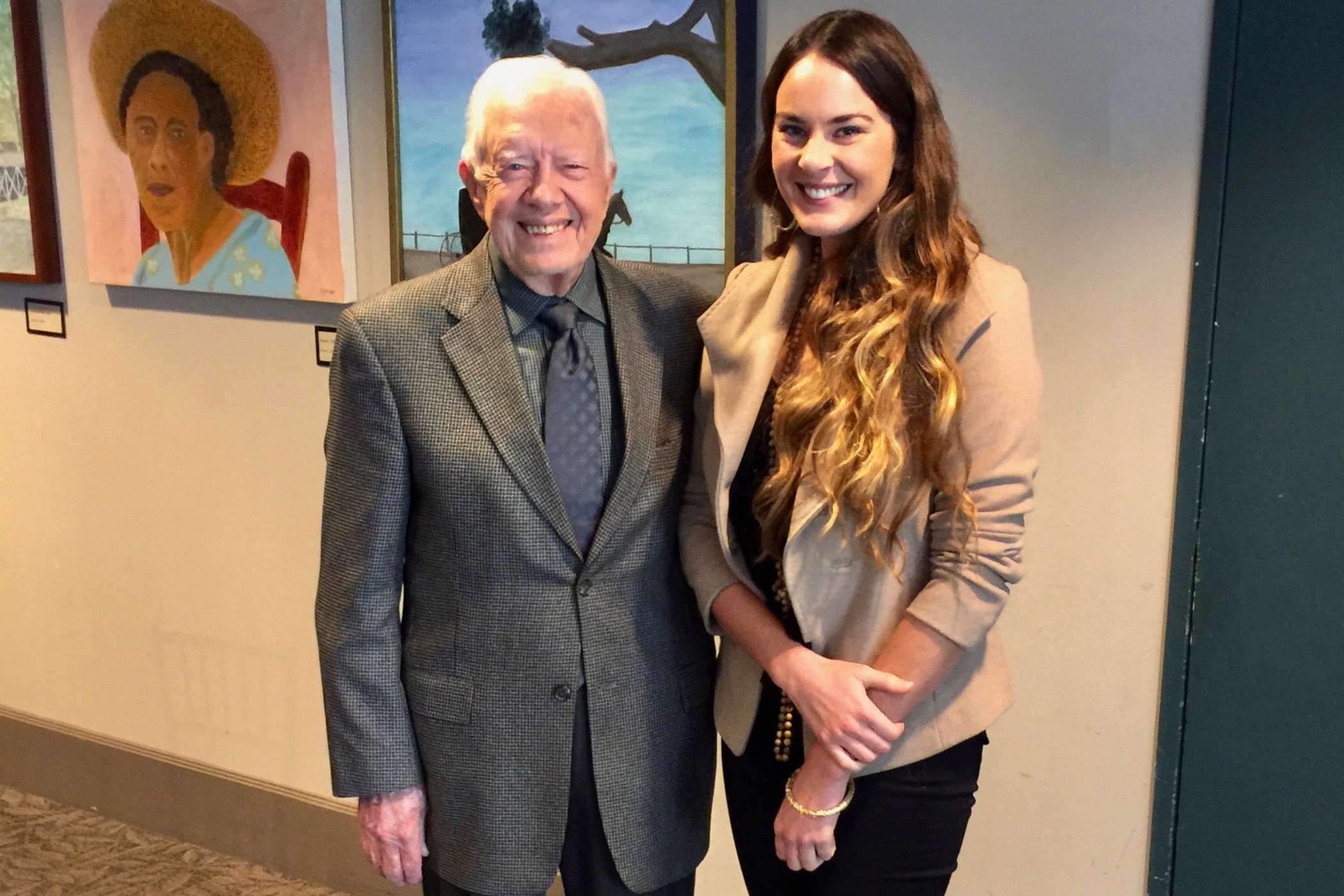
It’s Not Every Day the President Asks You to Lunch
Last week, I received the most unexpected email – “An Invitation to Lunch,” it read. It was from the assistant to President Jimmy Carter, and it was addressed to me – just me.
“The President,” he said, “has read about your work, and he would like to learn more. You focus on an especially important topic and you do so in a non-traditional way. He would be honored if you would come speak with him.” His assistant invited me to join the President for lunch at the Carter Center the following Thursday afternoon. Of course, I accepted his invitation immediately.
Side by side, the President and I waited in line in the cafeteria. He handed me a tray, we selected our sandwiches from the hot bar, and we filled our paper cups at the soda fountain. He placed some napkins and plastic cutlery beside my plate, and said, “Don’t worry, he’ll take care of us,” gesturing to the secret service agent behind us in line, with cash in hand to pay. We sat down together at a little round table, where the President blessed the meal before we ate. He spoke to me about his decision to call both Trump and Clinton earlier in the morning – because he knows what it feels like to win and to lose – and he shared with me his hope that our country will come together again soon. He told me that he has long been interested in the work I am doing to bring a new light to the migrant and refugee crisis – he had read my recent article for PRI and followed the progression of my current film project. [And yes, this was completely surreal to hear.] In fact, the President knew by name one of the young boys in the camp who I have written so much about. He talked to me about the crisis unfolding in Europe, asking me questions about the E.U.’s involvement in Morocco, about the situation for sub-Saharan Africans who are trapped there, and about the third-party agreements that are likely to develop between the E.U. on other nations on the periphery – other nations like Libya and Turkey – in the coming years. And at the end of the meal, he shared my sentiment that human stories are our strongest ally in fighting hate.
President Carter, who has devoted so much of his life to fighting disease, negotiating peace, and building hope across the developing world, sees that sometimes it is the story of that one boy in the masses that makes it harder for the rest of the world to turn away.
Sorry, the comment form is closed at this time.

